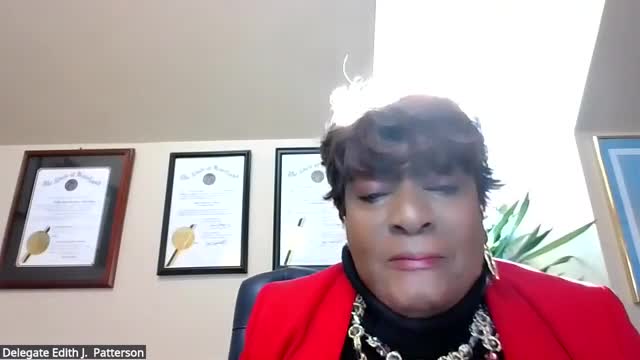Rural Maryland Council warns broadband gaps and budget cuts imperil Southern Maryland connectivity projects
Get AI-powered insights, summaries, and transcripts
Subscribe
Summary
Charlotte Davis, executive director of the Rural Maryland Council, told the Southern Maryland delegation that state maps show remaining broadband gaps and that Maryland has not yet received BEAD construction funds.
Charlotte Davis, executive director of the Rural Maryland Council, briefed the Southern Maryland delegation on state broadband mapping, federal funding status and recent cuts to regional programs during the delegation's February 2025 meeting.
Davis said state broadband maps show remaining coverage gaps in Southern Maryland and estimated there are "about 22,000 households across the state that lack access to the home." She described two separate mapping layers: one showing physical access gaps and another showing digital-inclusion gaps, which capture device access, affordability and digital skills.
Davis said Maryland had not yet received federal broadband funds under the Broadband Equity, Access, and Deployment (BEAD) program and said the state is concerned about risks to equity-focused dollars while construction funding may still arrive. She also noted that the federal Affordable Connectivity Program (ACP), which provided a $30 monthly subsidy, ended last year; Maryland's supplemental $15 monthly benefit also ended in February 2025.
"We do think that the equity dollars are going to be threatened," Davis said, noting that New York and California have pursued state affordability measures setting lower-cost options for low-income households.
Davis gave an overview of Rural Maryland Council grant activity: since 2019 the regional councils have awarded dozens of grants in Southern Maryland totaling more than $7 million, and the council funded roughly $662,000 in broadband infrastructure projects since 2022. She said operating and program budgets face cuts: the council's operating allocation fell from $9,000,000 to $6,000,000, and the Southern Maryland Agricultural Development Commission was cut to $750,000 and scheduled for phase-out in future years.
Davis said the Rural Maryland Council will open a grant program on Monday, April 21, with letters of intent due Friday, May 16, and that in-person and online application sessions will be scheduled for Southern Maryland.
What happened next
Delegation members were asked to review the briefing and to refer organizations seeking funding to the Rural Maryland Council. No formal vote or endorsement was recorded.
Why it matters
Delegation members heard that remaining broadband access gaps and the loss of affordability programs increase barriers to education, health care and employment for residents in Southern Maryland. The combination of federal program uncertainty and state-level budget cuts could delay or shrink planned build-out and digital-inclusion work in the region.
